And he did all that at just 40 years old.
“ Nguyen, a biomedical engineering star ” is the title of an article recently posted on the homepage of the University of Connecticut, USA. The article aims to honor a Vietnamese person who has made enormous contributions to this university, since he came to work here in 2016.
He is one of the researchers who has brought the University of Connecticut the most funding since then, with many projects considered groundbreaking and pioneering in the field of biomedicine.
Among them are $9.5 million from the US National Institutes of Health (NIH), considered the most competitive source of research funding in the US, and $6.6 million from the Bill and Melinda Gates Foundation of technology billionaire Bill Gates, for biomedical projects that create global impact.
“ Nguyen, an associate professor of mechanical and biomedical engineering, has established himself as one of the most highly funded researchers at the University of Connecticut,” the article said. “ In total, his extensive research funding — since he began working here as an associate professor in 2016 — amounts to $25 million, a testament to the impact of his research.”
And Nguyen here is none other than Associate Professor, young PhD Nguyen Duc Thanh, former student of the K47 Technical Physics Talent class , University of Science and Technology, Hanoi .
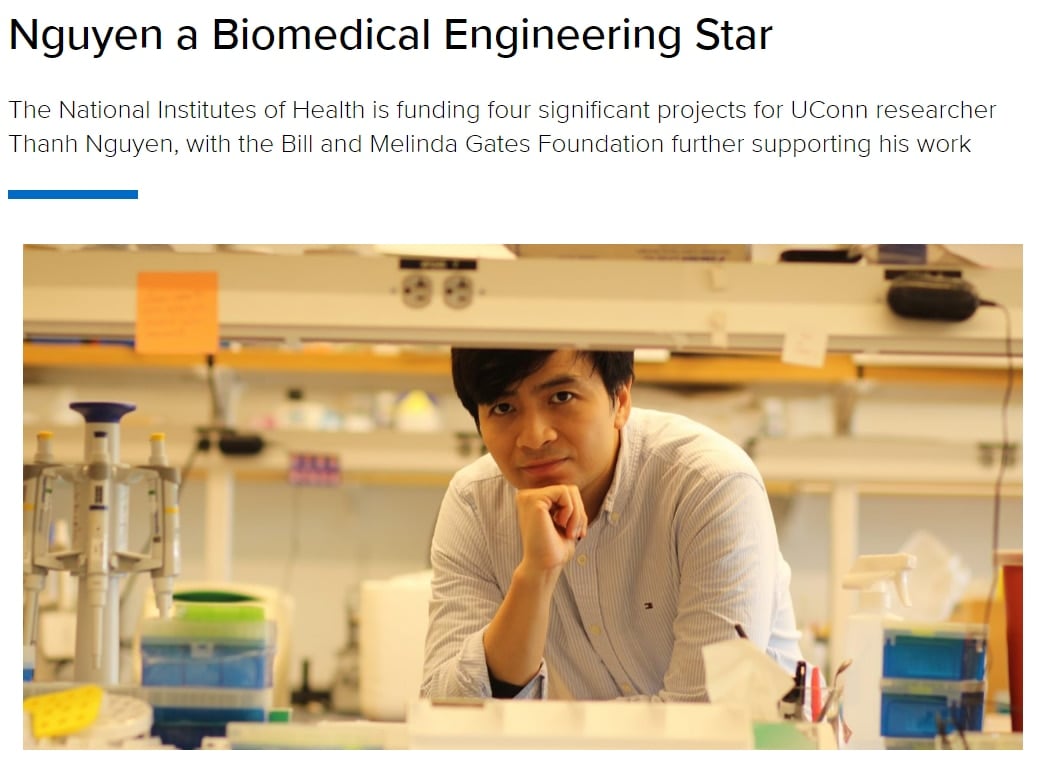
“Nguyen, a biomedical engineering star” is the title of an article recently posted on the homepage of the University of Connecticut.
Associate Professor, Dr. Nguyen Duc Thanh was born in 1984. Before studying at Hanoi University of Science and Technology, he was a former student majoring in Physics (A2) at Le Quy Don High School for the Gifted, Da Nang city.
After graduating from university, Thanh received a scholarship and continued his doctorate in mechanical and aerospace engineering at Princeton University, USA. He then returned to biomedical engineering and continued his postdoctoral studies at the Massachusetts Institute of Technology (MIT), USA.
Graduated in 2015, Dr. Thanh went to the University of Connecticut to teach and became an associate professor in the Department of Mechanical Engineering and Biomedical Engineering from 2016 to present.
Bringing tens of millions of dollars to American universities with pioneering research in the field
In parallel with his teaching activities, Associate Professor Dr. Nguyen Duc Thanh also runs his own laboratory at the University of Connecticut, with 21 staff members focusing on research in the fields of biomedicine, biomaterials, micro and nanotechnology.
“ Nguyen has made strides on many fronts, with his own multidisciplinary projects to help heal people suffering from a variety of diseases, ” the University of Connecticut website says.
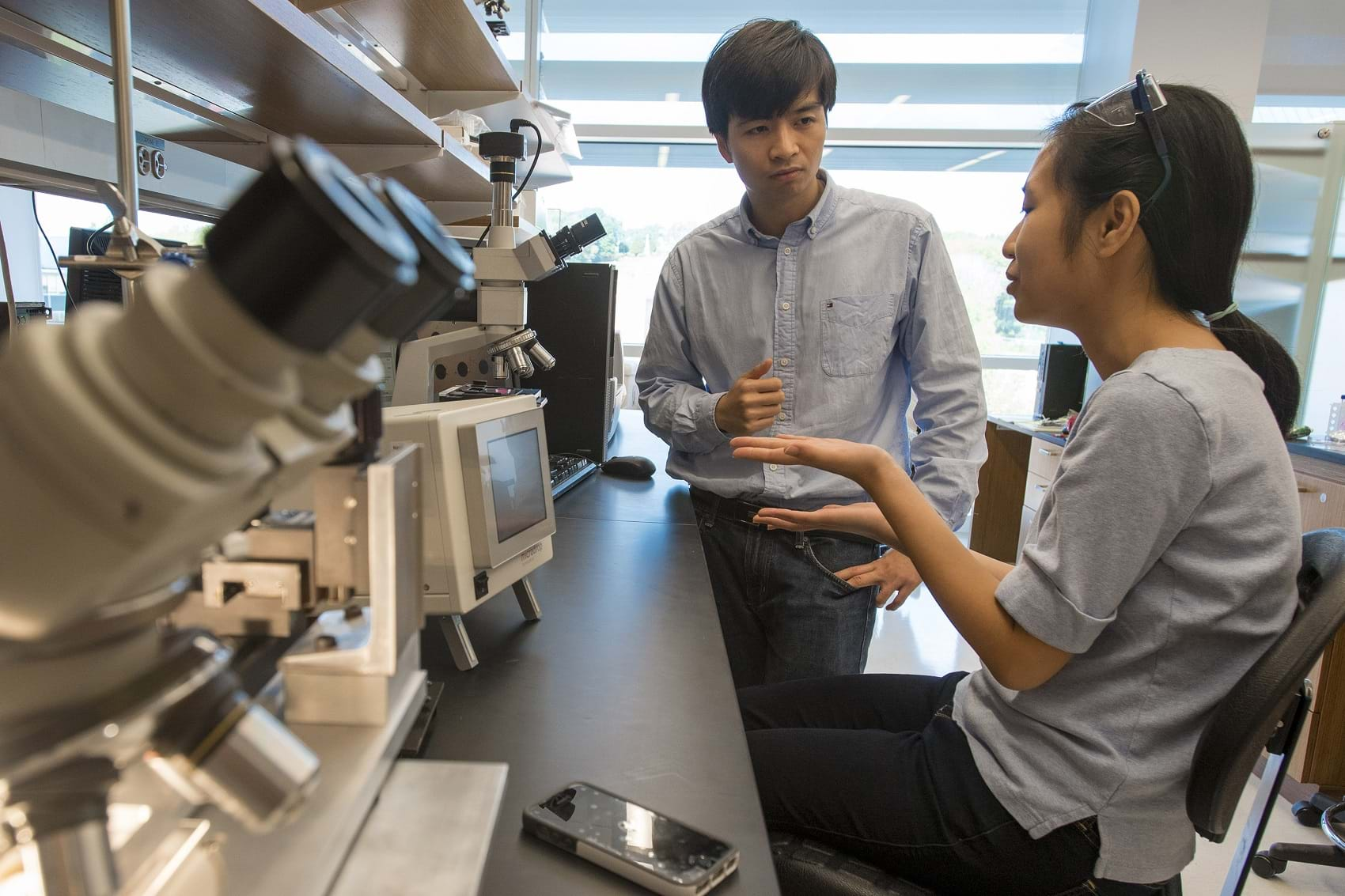
Associate Professor Dr. Nguyen Duc Thanh talks with one of his students at the University of Connecticut.
One of the latest studies by Associate Professor Dr. Nguyen Duc Thanh involves microneedle patches, which are capable of delivering many types of drugs and vaccines into the human body at programmed intervals.
This patch was developed by him based on 2 patents under his name. It is only the size of a thumb tip, but packed on the surface with hundreds of needles as small as hair roots. These microneedles are made of a material similar to bio-dissolvable thread. Inside it contains drug particles or vaccines so that they can be slowly released into the human body.
The beauty of this vaccine patch technology is that it can deliver multiple vaccines, or multiple drugs, at pre-programmed intervals, based on the thickness or thinness of the biodegradable microneedles.
This means that people who get vaccinated will only need to apply a single patch, rather than having to get multiple booster shots or multiple vaccines in quick succession as is currently the case. It also eliminates the need to store and transport medicines and vaccines in chains of freezers, which are inaccessible in remote areas or many poor countries.
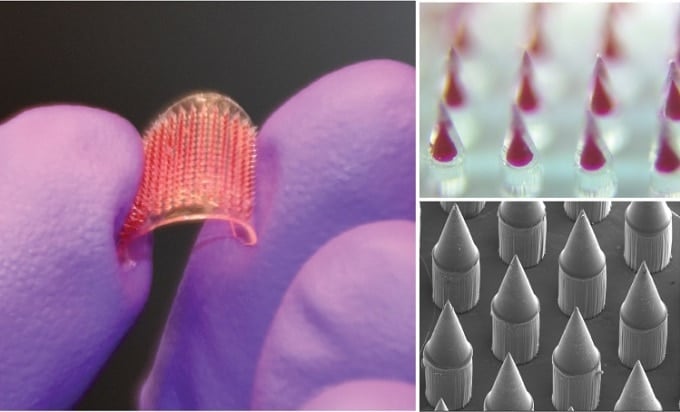
Biodegradable microneedle patch, one of the inventions of Associate Professor, Dr. Nguyen Duc Thanh, has made a splash in the world.
“The development of this patch is of great significance for the universalization of vaccines globally, especially for people in remote areas who cannot remember their booster vaccination schedules, while being several dozen kilometers away from medical facilities,” said Associate Professor, Dr. Nguyen Duc Thanh.
In addition, the microneedles have been designed to only reach the capillaries closest to the skin, which contain many immune cells that react to vaccine antigens , without touching the nerves, so they are completely painless. These patches are therefore very child-friendly.
Last September, this vaccine patch technology caught the attention of the Bill and Melinda Gates Foundation of technology billionaire Bill Gates, bringing Associate Professor Dr. Nguyen Duc Thanh's research team at the University of Connecticut a total of 6.6 million USD in funding to develop it to the commercial stage.
In addition, the US National Institutes of Health (NIH) also decided to fund 1.5 million USD for this project of Associate Professor, Dr. Nguyen Duc Thanh. In addition, there is a 2.1 million USD grant for another research of his, related to the invention to promote the self-healing process of bones in the body.
“ Bones in most parts of the body have the ability to regenerate themselves, but when you have a severe bone injury, with large and long fractures, the body needs support to regenerate,” Associate Professor, Dr. Nguyen Duc Thanh explained.
To help the body do that, he invented a biological scaffolding system that can wrap around broken bones, creating electrical stimulation that speeds up the bone's healing process.
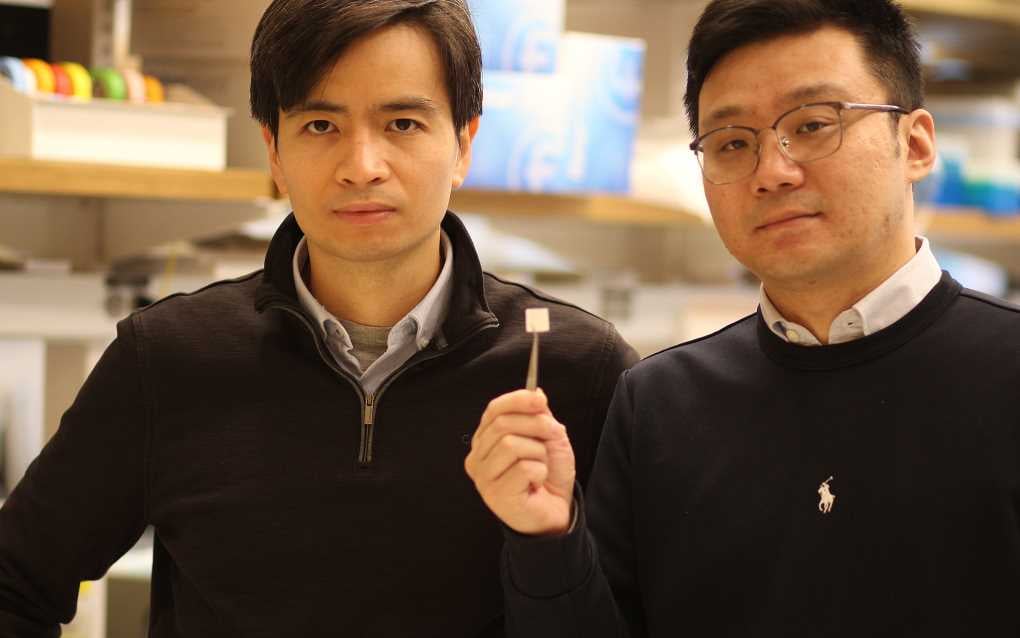
Associate Professor Dr. Nguyen Duc Thanh (left) and his student (right) Yang Liu - a Chinese postdoctoral researcher with a piezoelectric polymer patch.
Previously, a similar system also helped Associate Professor, Dr. Nguyen Duc Thanh receive nearly 2 million USD in funding from NIH, aiming to promote cartilage healing in the joints of patients with knee inflammation or degeneration.
He also received $2.16 million from the NIH to research a biodegradable ultrasound patch technology that opens the blood-brain barrier to deliver cancer drugs from the bloodstream into the brain.
“Our brain has a very strong protective cell membrane that surrounds the brain so that nothing (except blood) can penetrate this membrane into the brain. This membrane helps to protect the human brain from viruses, bacteria and toxins, but it is a huge obstacle when it comes to delivering medicine to treat diseases, ” said Associate Professor, Dr. Nguyen Duc Thanh.
“We are working on a solution to that problem by inventing devices that can be implanted into the brain, emit ultrasound waves to create a temporary penetration of drugs through this membrane, and then self-destruct safely, without the need for invasive surgery to remove the device from the brain, which would endanger this important part of the human body.”
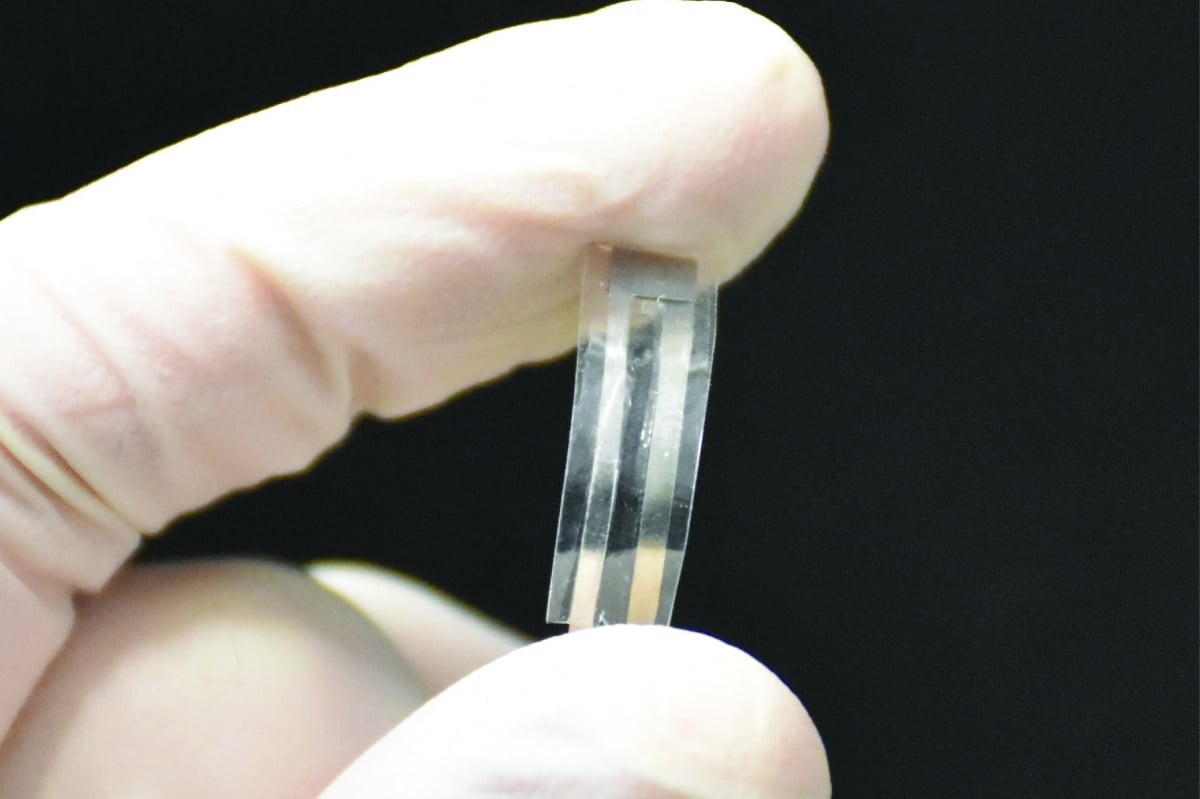
The self-dissolving brain implant, another invention of Associate Professor, Dr. Nguyen Duc Thanh.
According to the University of Connecticut, all of Associate Professor Dr. Nguyen Duc Thanh's research is highly groundbreaking. That is the reason he alone was able to attract up to 9.5 million USD from funding from the US National Institutes of Health.
These are “ the most competitive R01 grants, awarded only to research and development projects that meet NIH’s mission of improving health, prolonging life, and eliminating disease and disability, ” the University of Connecticut writes.
Honored in America's "temple of invention", but always looking towards the homeland of Vietnam
With his pioneering and influential research in the field, Associate Professor Dr. Nguyen Duc Thanh has received many prestigious awards in recent years. These include:
– “Trailblazer” Award for young researchers from the US National Institutes of Health (2017) ,
– Outstanding Young Engineer voted by the American Society of Manufacturing Engineers (2018) ,
– Outstanding Young Innovator U35 Asia – Pacific voted by MIT Technology Review magazine (2019),
– Outstanding young researcher in the field of regenerative medicine (2020),
– Outstanding young researcher voted by the leading journal on biomaterials Journal of Biomaterials (2022).
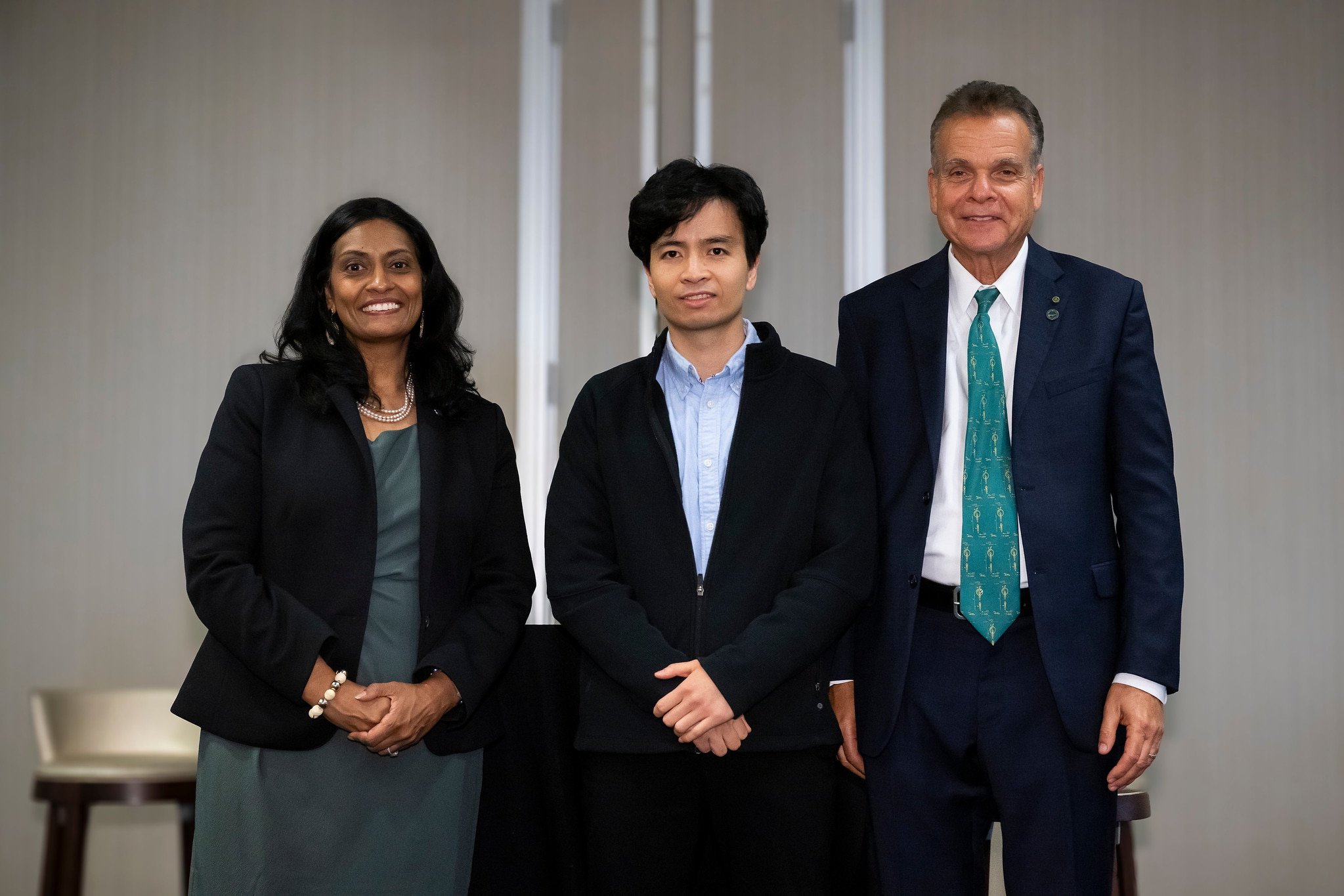
Associate Professor, Dr. Nguyen Duc Thanh at the ceremony of the National Academy of Inventors (NAI).
“Nguyen’s breakthroughs have resulted in numerous awards, more than 20 issued and pending patents, and induction into the U.S. National Academy of Inventors ,” the University of Connecticut said.
Being elected to the National Academy of Inventors (NAI) is a milestone that Associate Professor Dr. Nguyen Duc Thanh has just achieved in early 2024. NAI can be likened to the "temple " of inventors and creators in the United States.
“ NAI Senior Fellows are active faculty, scientists, and administrators from NAI Member Institutions who have demonstrated notable innovation in creating technologies that have delivered or are expected to deliver real impact on the well-being of society.
They are also increasingly successful with new patents granted and commercialized, and have educational and mentoring activities for the next generation of inventors ,” NAI said.
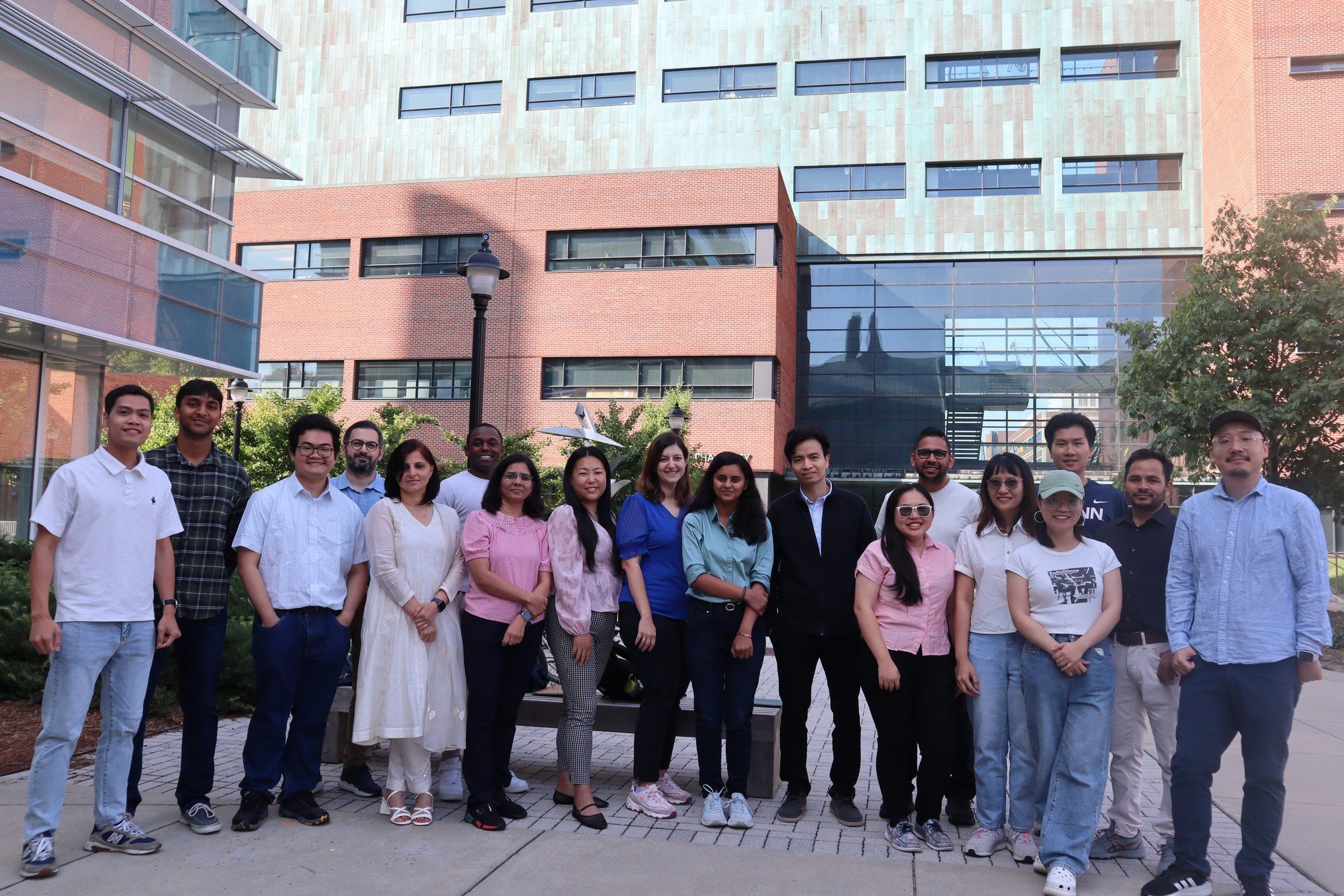
At the University of Connecticut, Associate Professor Dr. Nguyen Duc Thanh is running his own laboratory, supporting more than 21 people, including 11 postdoctoral fellows and 10 doctoral students, including 4 Vietnamese researchers.
True to the spirit of NAI, at the University of Connecticut where Associate Professor Dr. Nguyen Duc Thanh runs his own lab, he is supporting more than 21 people, including 11 postdoctoral fellows and 10 doctoral students, including 4 Vietnamese researchers.
Although working mainly in the US, Associate Professor Dr. Nguyen Duc Thanh always takes advantage of many working opportunities to return to Vietnam, participate in guest lectures, scientific reports and career counseling for students at many universities in the country.
“Unlike information technology, biomedical technology is a field that requires a great deal of interdisciplinary expertise. It involves many fields at the same time such as physics, chemistry, materials, computers, biology, medicine, etc.
In addition to human resources, this field also requires huge investment in machinery, equipment and a supporting industry to be able to commercialize products after completing the research stage ," he said.
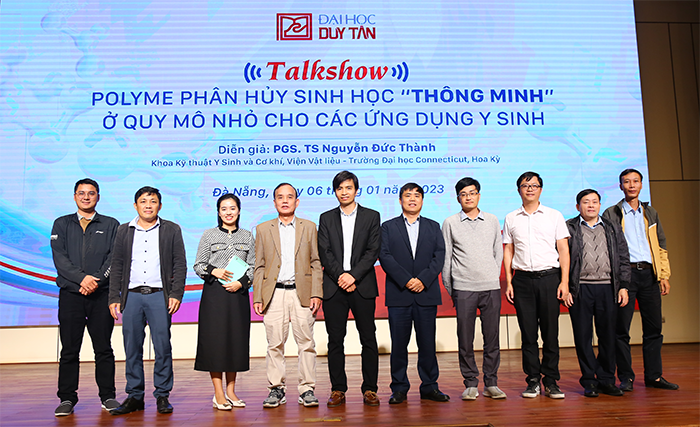
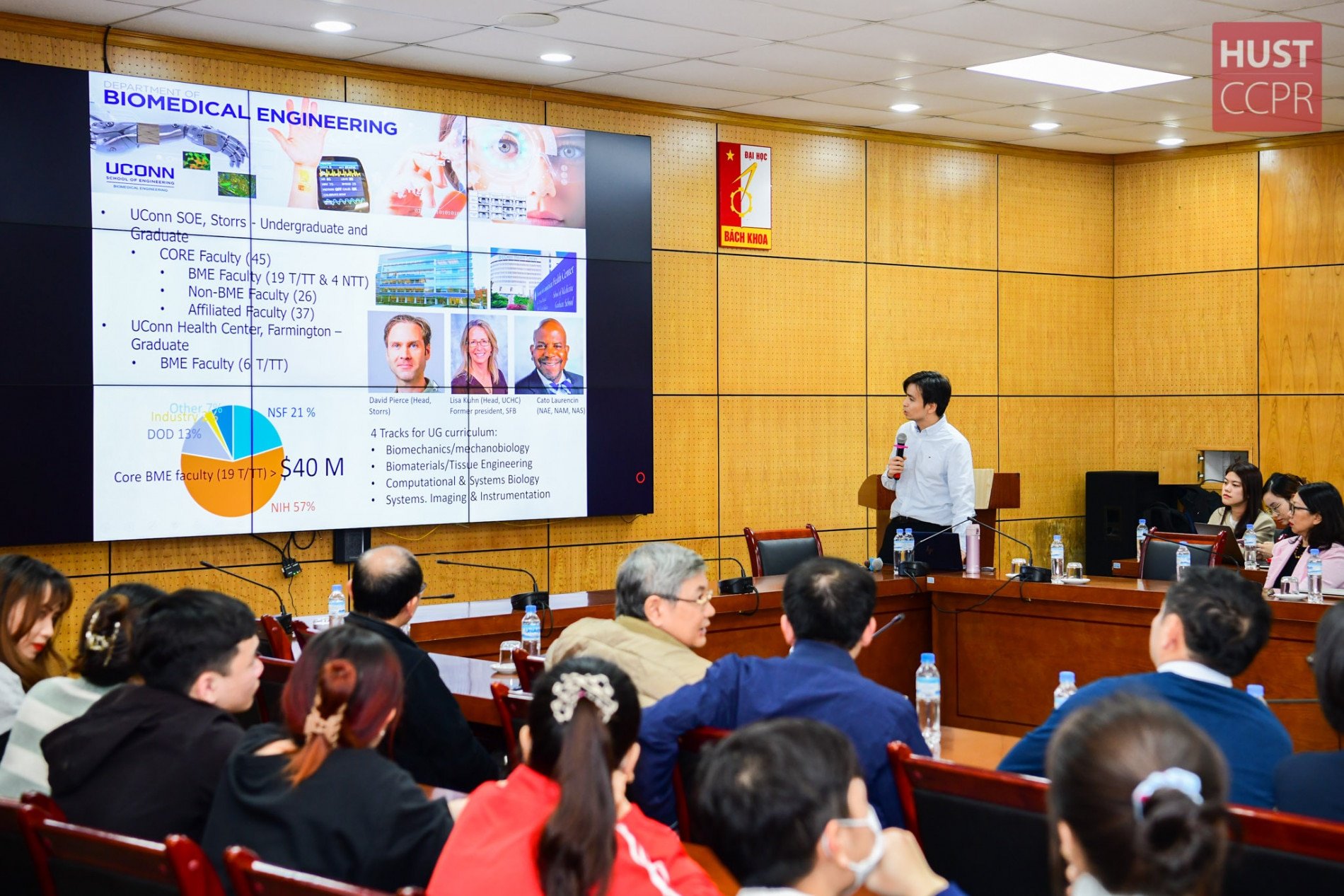
Associate Professor, Dr. Nguyen Duc Thanh and his activities in Vietnam. (Photo: Duy Thanh)
If we look at the three “pillars” related to the development of the biomedical technology industry: people, machinery infrastructure and supporting industry, with a strongly integrated and developing economy, Vietnam can meet the requirements of the latter two factors.
However, regarding biomedical technology human resources, the most important pillar, there needs to be a systematic and long-term investment and development strategy.
“In Vietnam, up to now, as far as I can see, there are only a few training units in this field, the number can be counted on the fingers. However, if we talk about a systematic, large-scale, and internationally standardized training facility for biomedical technology, we do not have it yet.
Compared to other countries, Vietnam's human resource level in this field is still very modest," Associate Professor, Dr. Nguyen Duc Thanh shared. He expressed his hope to arouse more interest from young students in the field of biomedical technology.
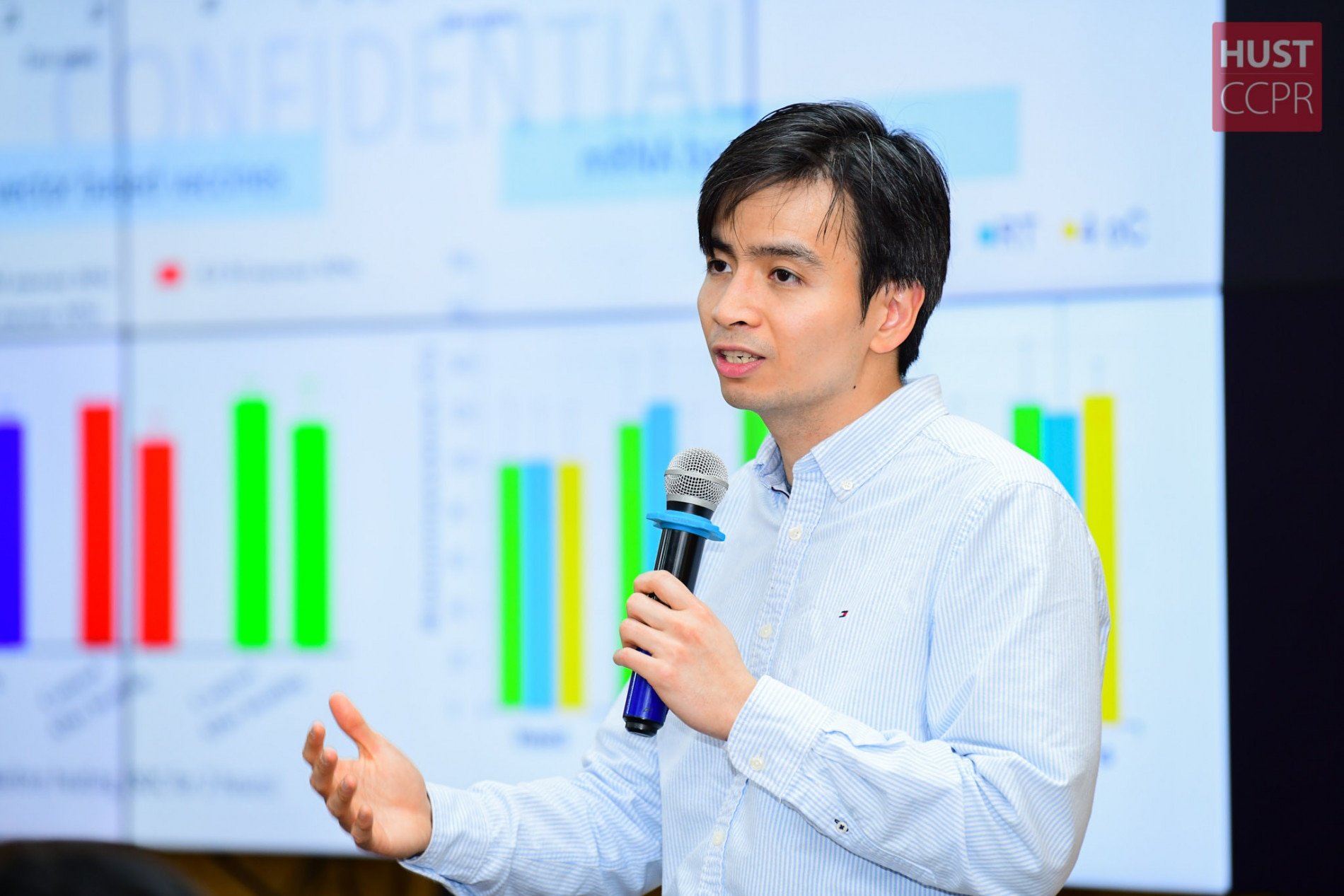
Associate Professor, Dr. Nguyen Duc Thanh talks with students of Hanoi University of Science and Technology (Photo: Duy Thanh)
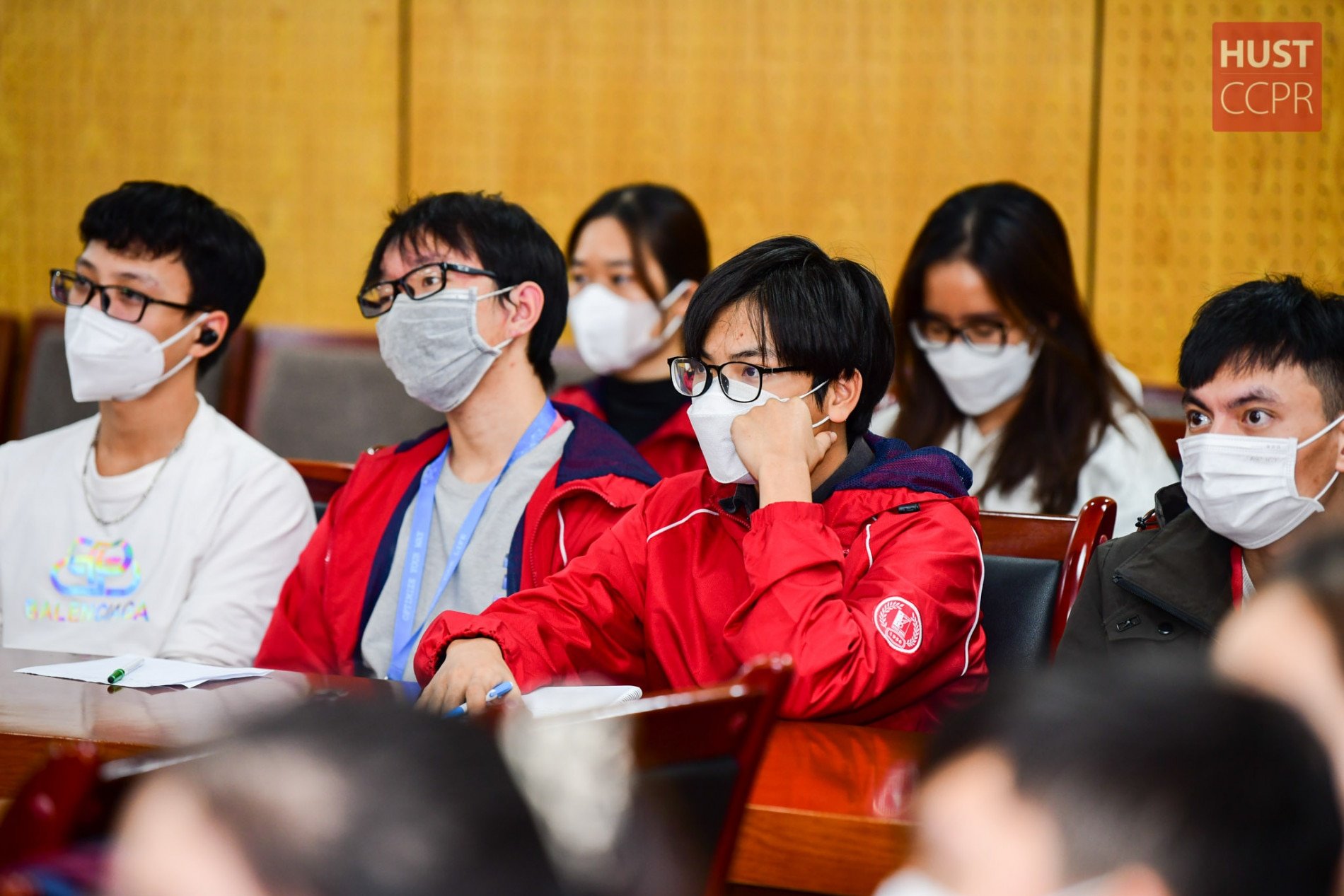
Associate Professor, Dr. Nguyen Duc Thanh talks with students of Hanoi University of Science and Technology (Photo: Duy Thanh)
“My lab is always open to Vietnamese students who are interested in pursuing this research direction. There are many Vietnamese students in my lab right now, they work very well, are hard-working and intelligent.
I think the biomedical field is currently receiving a lot of investment because everyone sees the impact of the epidemic, sees the need for technology to help solve these epidemics. That is a great opportunity for young people, especially young people in Vietnam," said Associate Professor, Dr. Nguyen Duc Thanh.
Source: Uconn, Medicalxpress, Nguyenresearchgroup


![[Photo] Prime Minister Pham Minh Chinh chairs meeting on science and technology development](https://vphoto.vietnam.vn/thumb/1200x675/vietnam/resource/IMAGE/2025/5/17/ae80dd74c384439789b12013c738a045)
![[Photo] Readers line up to visit the photo exhibition and receive a special publication commemorating the 135th birthday of President Ho Chi Minh at Nhan Dan Newspaper](https://vphoto.vietnam.vn/thumb/1200x675/vietnam/resource/IMAGE/2025/5/17/85b3197fc6bd43e6a9ee4db15101005b)
![[Photo] More than 17,000 candidates participate in the 2025 SPT Competency Assessment Test of Hanoi National University of Education](https://vphoto.vietnam.vn/thumb/1200x675/vietnam/resource/IMAGE/2025/5/17/e538d9a1636c407cbb211b314e6303fd)










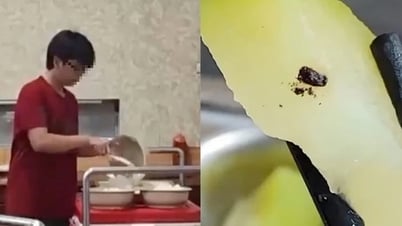




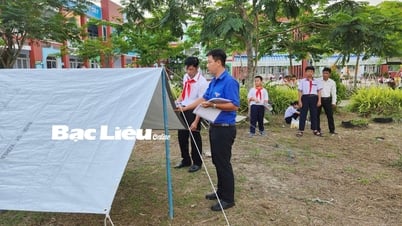

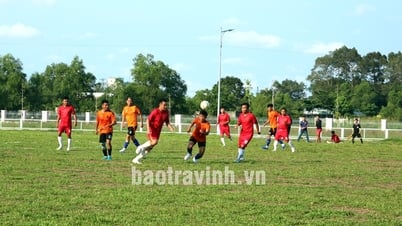








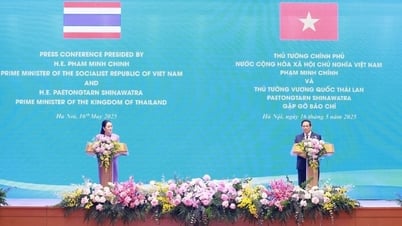


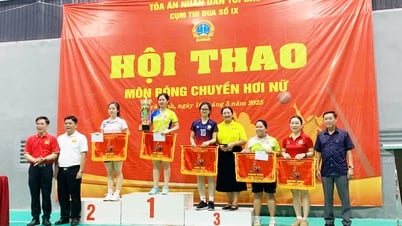
![[Photo] Nearly 3,000 students moved by stories about soldiers](https://vphoto.vietnam.vn/thumb/1200x675/vietnam/resource/IMAGE/2025/5/17/21da57c8241e42438b423eaa37215e0e)




















































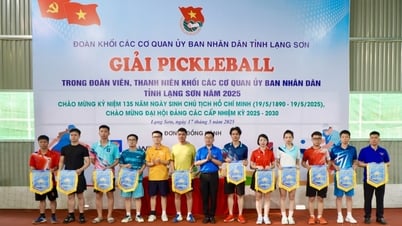















Comment (0)